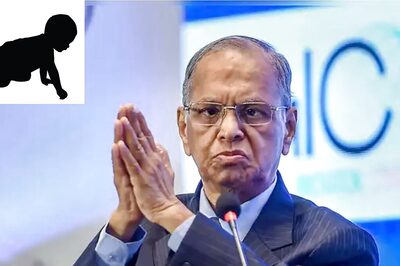
views
Residents of Pakistan-occupied Jammu and Kashmir (PoJK) decided to launch a ‘boycott electricity bill’ campaign on August 10. From Nakyal in Pooch to Muzaffarabad, consumers of Pakistan’s electricity have refused to pay bills until the add-on fuel taxes are removed. Likewise, pensioners have announced that they are going to descend on Muzaffarabad city, the capital of PoJK, on August 17 to protest against the non-payment of pensions for the past three months. Jammu and Kashmir Awami (People’s) Action Committee has called for a general strike on September 5 to protest against added taxes on electricity bills, cuts in subsidies, wheat shortages, load shedding and much more.
The people of PoJK are visibly angry. Their anger is bursting out of a volcano of frustration build over the past four years as the government continues to ignore their grievances.
The situation in Pakistan-occupied Gilgit-Baltistan (PoGB) is no different. Northern Areas Transport Corporation (NATCO) (est. 1974) has announced that they do not have sufficient funds to pay for wages or get buses and coaches repaired. The Essential Program on Immunisation (EPI) employees in PoGB have not received a single penny in wages for the past 18 months, which has led to near-starvation living conditions and their children being struck off the school register due to non-payment of tuition fees.
The sewerage system of Muzaffarabad has collapsed, leading to an overflow of sewage water onto the streets. This has resulted in ankle-high puddles of sewage and the stench in the atmosphere has become totally unbearable, leading to a reduction in the number of customers visiting shops and businesses in the city. The city of Kotli in Poonch has no drinking water or electricity. Public health services are in shambles and residents are left with no choice but to purchase water, at exorbitant prices, from water tanker vehicles that are controlled by the notorious tanker mafia.
For the past three months, social and human rights activists have set up a protest camp in Rawalakot city, but to no avail. In the village of Noon Bagla, in Muzaffarabad district, locals have begun a hunger strike protest against the lack of teaching staff and facilities in the local high school. Councillors elected in November-December 2022, after 30 years of lapse in local body elections, have not been allocated any development funds or powers to help uplift the living conditions of their constituencies.
All of the above-mentioned atrocities and hardships faced by my people have become too much to bear. Although, sporadic protests in various cities and towns in PoJK have been a norm for expressing public dissent and disdain, but now it seems the months ahead could be thunderous.
What is making the people of PoJK and PoGB even angrier is the comparison between PoJK and the Indian Union Territory (UT) of Jammu and Kashmir. On August 5, 2019, when Article 370 was abrogated, culminating in the end of the so-called special status granted to the former state of Jammu and Kashmir, it was expected that Jammu and Kashmir will be engulfed in a ‘blood bath’, to quote Pakistan’s former Prime Minster Imran Khan. Nothing of the sort took place and instead, Pakistan found itself diplomatically isolated with an economy heading for default.
The people of both PoJK and PoGB have witnessed (through social media) that during the past 4 years, the UT of J&K has progressed and transformed beyond recognition. The law and order situation has reportedly been improved by 97 per cent and acts of terrorism have been reduced by 45 per cent. The Panchayat and DDC elections have resulted in thousands of grassroots-level elected representatives. Tourism has been boosted to a previously unimagined level of 18.8 million in 2022.
Rs 73,000 crore of investment has made its way into Jammu and Kashmir and Rs 58,478 crore has been issued to the UT as Prime Minister’s Development Package (PMDP). The highest railway bridge in the world is now the pride of Jammu and Kashmir and so is the fact that the G20 event was hosted by what has now become a smart city — Srinagar.
On the contrary, the people of PoJK sit on land that is abundant in natural resources, estimated at Rs 78.59 trillion and yet, they are living in extreme poverty. The sheer comparison between the two Jammu and Kashmirs’ is enough to keep the residents of PoJK angry for a very long time unless they rebel and rejoin the union of the Republic of India.
Dr Amjad Ayub Mirza is an author and a human rights activist from Mirpur in PoJK. He currently lives in exile in the UK. Views expressed in the above piece are personal and solely that of the author. They do not necessarily reflect News18’s views.




















Comments
0 comment